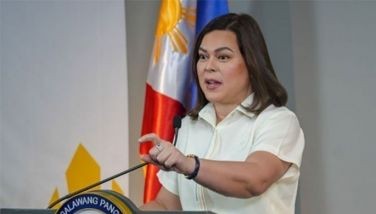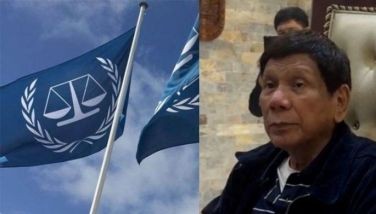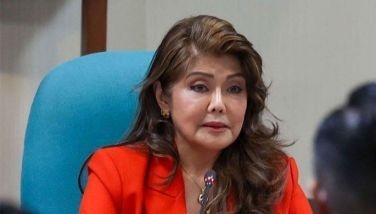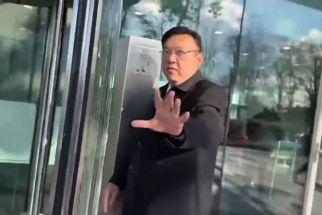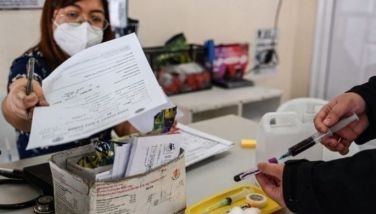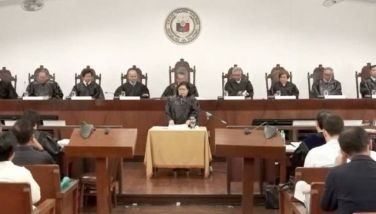Fil-Ams eye US Congress
August 20, 2006 | 12:00am
HONOLULU (AP) — Two Filipino-Americans are struggling against long odds and a crowded field of candidates — including each other — to become the first member of the US Congress from one of the country’s largest immigrant groups.
Filipino organizations nationwide are pushing for either state senator Ron Menor or Honolulu councilman Nestor Garcia to win the Democratic primary in Hawaii’s second district.
In a race with 10 Democrats, both Menor and Garcia are hoping to gain an advantage by pulling votes from Hawaii’s 275,000 residents who claim Filipino ancestry. The winner of the Sept. 23 Democratic primary is heavily favored to take the seat.
But both Filipino-American candidates face a difficult road to the House of Representatives.
While no candidate has emerged as a clear front-runner, four of the Democrats in the race had raised more money than Menor or Garcia as of July 31. The winner in the Nov. 7 general election would replace Congressman Ed Case, who is trying to take the Senate seat of fellow Democrat Daniel Akaka.
More Filipinos immigrated to the United States in 2003 than citizens of any other country except Mexico and India, according to immigration statistics. About 2.4 million Americans identified their ancestry as Filipino in the 2000 census, more than several other national groups that have been represented in Congress for years, including Hawaiians and Japanese.
Most Filipino-Americans live in California, Washington, New York and Hawaii.
"The pulse of the Filipino community is that they’re really looking at it now," said Lynne Gutierrez, president of the Oahu Filipino Community Council. "They’re really into it."
Several previous Americans who trace their roots to the former US colony in Southeast Asia have sought and failed to win seats in Congress, including California’s Gloria Ochoa, West Virginia’s Jon Amores and Tennessee’s Lupo "Sonny" Carlota.
That could change if Filipinos across the United States are able to unite behind Menor or Garcia, said Jon Melegrito, spokesman for the Washington, DC-based National Federation of Filipino American Associations, which is holding its national convention in Hawaii next month.
"We’ve been trying over the years to send Filipino Americans to the US Congress," Melegrito said. "They haven’t been able to mobilize the kind of money and resources and votes to get them elected."
Former Hawaii Gov. Ben Cayetano, who served two terms ending in 2002, was the nation’s first and only Filipino governor and the highest Filipino-American officeholder ever elected in the United States.
"My election will exemplify and symbolize the significant strides Filipinos in Hawaii have made in all areas of life," Menor said. "On the national level, Filipinos have been underrepresented."
Menor said if he were elected to the House, he would draw on his experience as a consumer advocate who has served in the Hawaii legislature since 1982.
"Whether it’s me or Ron or someone else in the country who’s running, one of these days we’re going to grab that brass ring," Garcia said. "I would like to think it’s Hawaii who sends a Filipino to Congress."
Filipino organizations nationwide are pushing for either state senator Ron Menor or Honolulu councilman Nestor Garcia to win the Democratic primary in Hawaii’s second district.
In a race with 10 Democrats, both Menor and Garcia are hoping to gain an advantage by pulling votes from Hawaii’s 275,000 residents who claim Filipino ancestry. The winner of the Sept. 23 Democratic primary is heavily favored to take the seat.
But both Filipino-American candidates face a difficult road to the House of Representatives.
While no candidate has emerged as a clear front-runner, four of the Democrats in the race had raised more money than Menor or Garcia as of July 31. The winner in the Nov. 7 general election would replace Congressman Ed Case, who is trying to take the Senate seat of fellow Democrat Daniel Akaka.
More Filipinos immigrated to the United States in 2003 than citizens of any other country except Mexico and India, according to immigration statistics. About 2.4 million Americans identified their ancestry as Filipino in the 2000 census, more than several other national groups that have been represented in Congress for years, including Hawaiians and Japanese.
Most Filipino-Americans live in California, Washington, New York and Hawaii.
"The pulse of the Filipino community is that they’re really looking at it now," said Lynne Gutierrez, president of the Oahu Filipino Community Council. "They’re really into it."
Several previous Americans who trace their roots to the former US colony in Southeast Asia have sought and failed to win seats in Congress, including California’s Gloria Ochoa, West Virginia’s Jon Amores and Tennessee’s Lupo "Sonny" Carlota.
That could change if Filipinos across the United States are able to unite behind Menor or Garcia, said Jon Melegrito, spokesman for the Washington, DC-based National Federation of Filipino American Associations, which is holding its national convention in Hawaii next month.
"We’ve been trying over the years to send Filipino Americans to the US Congress," Melegrito said. "They haven’t been able to mobilize the kind of money and resources and votes to get them elected."
Former Hawaii Gov. Ben Cayetano, who served two terms ending in 2002, was the nation’s first and only Filipino governor and the highest Filipino-American officeholder ever elected in the United States.
"My election will exemplify and symbolize the significant strides Filipinos in Hawaii have made in all areas of life," Menor said. "On the national level, Filipinos have been underrepresented."
Menor said if he were elected to the House, he would draw on his experience as a consumer advocate who has served in the Hawaii legislature since 1982.
"Whether it’s me or Ron or someone else in the country who’s running, one of these days we’re going to grab that brass ring," Garcia said. "I would like to think it’s Hawaii who sends a Filipino to Congress."
BrandSpace Articles
<
>
- Latest
- Trending
Trending
Latest
Trending
Latest
Recommended


















